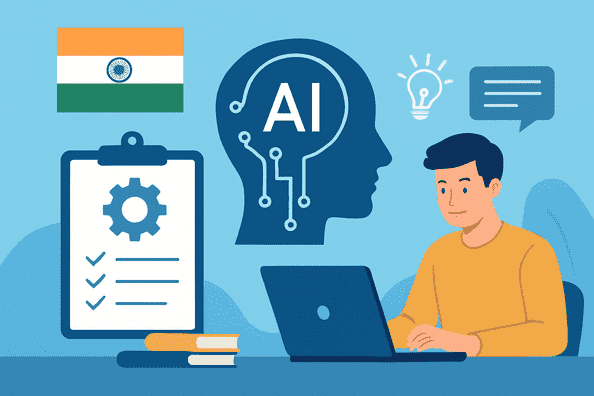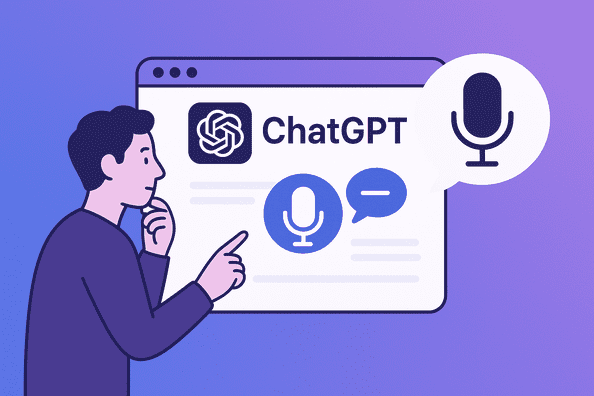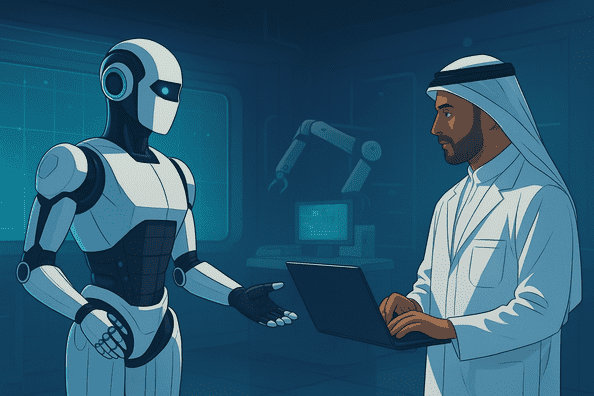The AI job market for graduates is experiencing unprecedented transformation, creating both opportunities and challenges for the class of 2025. As artificial intelligence reshapes industries at breakneck speed, new graduates face a complex landscape where traditional entry-level positions are evolving, disappearing, or being enhanced by technological capabilities.
While the unemployment rate for recent college graduates has climbed to 5.8% — the highest since 2021 — this statistic tells only part of the story. The real challenge lies not just in finding employment, but in understanding how to position oneself strategically in an economy where AI job market for graduates demands new skill sets and adaptive thinking.
The Current Reality: Entry-Level Jobs in Transition
Unprecedented Challenges Facing Today’s Graduates
The AI job market for graduates presents a stark reality check for the class of 2025. Recent data reveals alarming trends that new graduates must understand to navigate their career paths effectively.
For the first time in 45 years, college graduates aged 22-27 are experiencing unemployment rates higher than the national average, with recent graduates facing a 6.6% unemployment rate compared to the overall 4% rate. This represents a fundamental shift in the traditional advantage that higher education provided in the job market.
The entry-level job market has contracted significantly, with a 33% decrease in job postings for recent graduates compared to the previous year. This contraction isn’t merely a temporary economic blip but reflects deeper structural changes in how companies approach hiring and task distribution.
How AI is Reshaping Entry-Level Opportunities
Companies are increasingly turning to AI to handle tasks traditionally assigned to junior employees. 63% of senior executives admit they expect AI to take over many routine tasks currently handled by entry-level employees. This shift particularly impacts roles in:
- Data entry and processing — now largely automated through AI systems
- Basic research and analysis — handled by AI-powered tools and algorithms
- Customer service interactions — replaced by sophisticated chatbots and virtual assistants
- Content creation and editing — managed by generative AI platforms
- Financial analysis and reporting — automated through machine learning models
Tech companies have been particularly aggressive in this transformation. Some firms have stopped hiring below L5 software engineer positions (typically requiring 3-7 years of experience) because lower-level tasks can now be handled by AI coding tools. Similarly, data science roles that once required teams of 75 people can now be managed by a single professional leveraging AI capabilities.
Industry-Specific Impact Analysis
The disruption varies significantly across sectors, with some industries experiencing more dramatic changes than others:
Financial Services: Wall Street investment banks are considering reducing junior analyst hiring by up to two-thirds as AI takes over tasks like updating charts, valuation tables, and financial modeling. The traditionally grueling 80-100 hour work weeks for junior analysts may become obsolete as AI handles routine analytical work.
Technology Sector: The irony is palpable — the very industry creating AI solutions is among the first to reduce entry-level hiring. 92% of IT jobs will be transformed by AI, with entry-level positions facing the highest risk of automation.
Marketing and Media: AI tools can now handle content creation, social media management, and basic market research, traditionally the domain of junior marketing professionals.
Essential Skills for the AI Job Market for Graduates
Technical Competencies That Matter
Success in the AI job market for graduates requires a strategic approach to skill development. Rather than competing against AI, graduates must learn to work alongside it effectively.
Programming and Data Skills form the foundation of AI literacy. Python emerges as the most critical programming language, appearing in 4,450 AI job listings — more than any other skill. Graduates should prioritize:
- Python programming for AI and machine learning applications
- SQL and database management for data manipulation and analysis
- TensorFlow and PyTorch frameworks for deep learning projects
- Cloud computing platforms like AWS, Google Cloud Platform, and Microsoft Azure
- Version control systems like Git for collaborative development
Machine Learning Fundamentals represent the core technical knowledge needed in AI-enhanced workplaces. This includes understanding:
- Supervised and unsupervised learning algorithms
- Neural network architectures and deep learning concepts
- Natural Language Processing (NLP) for text-based applications
- Computer vision for image and video analysis
- Statistical analysis and data interpretation
AI-Adjacent Skills That Provide Competitive Advantage
Beyond direct AI technical skills, graduates can differentiate themselves through AI-adjacent competencies that enhance rather than replace human capabilities:
AI Ethics and Governance represents a growing field as organizations grapple with responsible AI implementation. Understanding bias detection, fairness algorithms, and ethical AI frameworks positions graduates for emerging roles in AI oversight and compliance.
Human-AI Collaboration skills involve knowing when to rely on AI tools and when human judgment is crucial. This includes prompt engineering for generative AI systems, AI-assisted decision making, and quality control for AI outputs.
Data Storytelling and Visualization combines technical analysis with human communication skills. Tools like Tableau, Power BI, and advanced Excel capabilities help translate AI insights into actionable business intelligence.
Soft Skills That AI Cannot Replace
The AI job market for graduates increasingly values uniquely human capabilities that complement technological advancement:
Creative Problem-Solving tops the list of in-demand soft skills, as AI excels at optimization within defined parameters but struggles with innovative approaches to novel challenges.
Emotional Intelligence and Interpersonal Communication become more valuable as workplace interactions require nuanced understanding of human motivation, team dynamics, and client relationships.
Adaptability and Learning Agility represent meta-skills that enable continuous growth in a rapidly changing technological landscape. The ability to quickly acquire new tools and adapt to evolving job requirements distinguishes successful professionals.
Strategic Career Navigation in the AI Job Market for Graduates
Building an AI-Enhanced Portfolio
In the competitive AI job market for graduates, a compelling portfolio demonstrates practical application of AI skills rather than theoretical knowledge alone.
Project-Based Demonstrations should showcase end-to-end problem-solving using AI tools. Effective portfolios include:
- Machine learning projects that solve real-world problems with measurable outcomes
- AI-enhanced business solutions that demonstrate understanding of commercial applications
- Cross-functional collaborations showing ability to work with diverse teams on AI initiatives
- Open-source contributions to established AI projects or frameworks
Documentation and Presentation Skills become crucial for portfolio success. Each project should include clear problem statements, methodology explanations, results analysis, and lessons learned. This demonstrates both technical competency and communication abilities valued by employers.
Networking in AI-Focused Industries
The AI job market for graduates rewards proactive relationship building within the AI community. Strategic networking approaches include:
Professional AI Communities offer access to industry insights and job opportunities. Key platforms include:
- AI/ML conferences and meetups for direct engagement with practitioners
- LinkedIn AI and machine learning groups for ongoing professional discussions
- GitHub collaborations on AI projects to demonstrate technical skills
- Industry-specific AI forums related to target career fields
Mentorship from AI Professionals provides invaluable guidance for navigating career transitions. Effective mentorship relationships focus on specific skill development goals and industry trend insights rather than general career advice.
Alternative Career Pathways
Given the challenging traditional entry-level market, graduates should consider alternative pathways into AI-enhanced careers:
Internships and Apprenticeships in AI-focused companies provide hands-on experience and potential pathway to full-time roles. Many organizations offer structured programs specifically designed to bridge the gap between academic learning and practical application.
Freelance and Contract Work allows graduates to build experience while developing a professional network. Platforms like Upwork and Toptal increasingly feature AI-related project opportunities that can serve as stepping stones to permanent positions.
Cross-Industry Applications of AI skills open opportunities beyond traditional tech roles. Healthcare, finance, manufacturing, and retail all need professionals who understand both industry-specific challenges and AI solution capabilities.
Future-Proofing Your Career in the AI Job Market for Graduates
Continuous Learning and Adaptation
Success in the AI job market for graduates requires embracing lifelong learning as a core professional competency rather than a supplementary activity.
Structured Learning Pathways should combine formal education with practical application. Effective approaches include:
- Professional certifications from recognized platforms like Coursera, edX, and AWS
- Industry-specific AI specializations that combine technical skills with domain expertise
- Regular participation in AI workshops and bootcamps to stay current with technological advances
- Academic partnerships through part-time programs or continuing education courses
Trend Monitoring and Analysis helps graduates anticipate market shifts and position themselves accordingly. This involves following AI research publications, industry reports, and expert analyses to understand emerging opportunities and threats.
Building Resilience in an Uncertain Market
The volatility of the AI job market for graduates demands emotional and professional resilience strategies.
Diversified Skill Development reduces dependence on any single technological trend or industry sector. Graduates benefit from building complementary capabilities across technical, business, and interpersonal domains.
Financial Planning for Career Transitions acknowledges that AI-era careers may involve more frequent role changes and skill updates. Building financial reserves and understanding alternative income streams provides flexibility during career pivots.
Mental Health and Well-being become crucial considerations as graduates navigate increased uncertainty and competition. Professional counseling, peer support networks, and stress management techniques help maintain long-term career sustainability.
Long-term Career Strategy Development
Rather than seeking immediate perfect job matches, graduates should develop strategic career frameworks that accommodate uncertainty and change:
Skills-Based Career Planning focuses on building transferable capabilities rather than targeting specific job titles or companies. This approach provides flexibility as AI continues reshaping role definitions and organizational structures.
Geographic and Remote Work Considerations expand opportunity scope beyond local markets. The AI job market for graduates increasingly supports remote collaboration, opening access to global opportunities for those with relevant skills.
Entrepreneurial Thinking prepares graduates to create value through AI-enhanced solutions rather than solely seeking traditional employment. Understanding business model innovation and customer problem-solving positions graduates for diverse career paths.
Success Stories and Practical Examples
Graduates Thriving in AI-Enhanced Roles
Despite challenges, many recent graduates are successfully navigating the AI job market for graduates through strategic positioning and skill development.
Case Study: Career Transition Through AI Specialization
Sarah Chen, a 2024 psychology graduate, successfully transitioned into a data analyst role at a healthcare technology company by completing an intensive 6-month machine learning bootcamp. Rather than competing for traditional psychology positions, she leveraged her understanding of human behavior combined with AI skills to specialize in patient experience analytics.
Her strategy included:
- Building a portfolio of healthcare-related AI projects during her bootcamp
- Networking with healthcare professionals through LinkedIn and industry meetups
- Demonstrating unique value by combining psychology insights with technical analysis
- Accepting a contract position that led to full-time employment after proving her capabilities
Case Study: AI-Enhanced Business Development
Michael Rodriguez, a 2024 business administration graduate, created his competitive advantage by specializing in AI sales and business development. Despite initial rejections from traditional sales roles, he focused on companies implementing AI solutions for their clients.
His approach involved:
- Self-directed learning about AI applications across different industries
- Volunteering for AI startups to gain practical experience and references
- Developing consultative selling skills specifically for technical AI products
- Building relationships with AI company founders and executives through industry events
Lessons from Successful Career Pivots
Successful navigation of the AI job market for graduates reveals common patterns and strategies:
Combining Domain Expertise with AI Skills proves more effective than pursuing pure technical roles. Graduates who understand specific industry challenges and can apply AI solutions within those contexts often outcompete purely technical candidates.
Proactive Skill Development through self-directed learning, bootcamps, and certification programs demonstrates initiative and adaptability valued by employers in uncertain market conditions.
Network-Driven Opportunities frequently provide better career outcomes than traditional job application processes. Relationships built through professional communities, volunteer work, and industry engagement often lead to unadvertised opportunities.
Call to Action: Your Next Steps in the AI Job Market for Graduates
The AI job market for graduates presents both unprecedented challenges and remarkable opportunities for those willing to adapt and strategically position themselves. Success requires moving beyond traditional job search approaches to embrace a more dynamic, skills-focused career development strategy.
Immediate Action Steps:
- Assess your current AI literacy and identify specific skill gaps through online assessments and industry research
- Begin a structured learning program combining technical AI skills with your existing domain expertise
- Start building an AI-enhanced portfolio with practical projects that demonstrate real-world problem-solving capabilities
- Engage with AI professional communities both online and through local meetups and industry events
- Develop relationships with AI professionals who can provide mentorship and career guidance
Long-term Strategic Considerations:
- Embrace continuous learning as a permanent aspect of your professional development
- Build financial resilience to support career transitions and skill development investments
- Maintain mental health and well-being through support networks and stress management practices
- Stay informed about industry trends through regular engagement with AI research and business publications
The transformation of the job market through AI represents one of the most significant economic shifts in modern history. While the challenges are real and substantial, graduates who proactively develop relevant skills and strategic thinking will find themselves well-positioned for careers that didn’t exist just a few years ago.
Your success in the AI job market for graduates depends not on competing against artificial intelligence, but on learning to enhance human capabilities through intelligent collaboration with these powerful tools. The future belongs to professionals who can bridge the gap between technological capability and human insight — and that future starts with the strategic choices you make today.
The path forward requires courage, adaptability, and strategic thinking. But for graduates willing to embrace this challenge, the AI job market for graduates offers opportunities for meaningful, impactful careers at the forefront of technological innovation. Your journey into this transformed professional landscape begins now.



